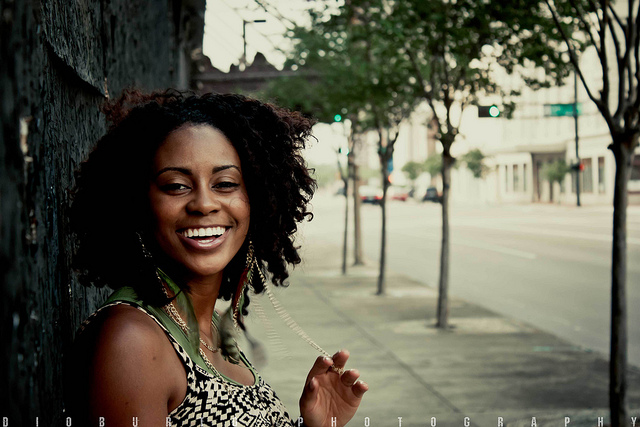What is happiness, and how do we find it?
It’s the question we’re all trying to find the answer to. We all seem to be pursuing it, yet we so often miss the mark.
Happiness is not merely the absence of suffering or a temporary halt in unhappiness; it’s being connected to who we are. It’s less about elation and perfection, and more about purpose and fulfillment.
Here are 10 things we all need to know about happiness:
1. It’s the journey, not the destination.
We seem to think that happiness is not possible in the here and now. We struggle now, so we can enjoy happiness later—perhaps when we retire. We seem to think happiness is some far-off destination—a place we eventually reach where everything is perfect.
But that tomorrow never comes, and neither does perfection. Both the good and bad will come and go, but we still have a chance to be happy every single day. It’s found in how we choose to live, how we react, and how we treat ourselves and others.
We spend so much of our time worrying about the future or going over the past that we often miss the present and the moments of happiness that exist in it.
If we are too busy looking for the pot of gold, we miss the beauty of the rainbow.
2. It’s not a thing we search for and find.
We see happiness as something outside of ourselves, something external we have to pursue and “find.”
We make it our business to search for things that make us happy, yet the very pursuit is taking us further away from the goal. You may “want” a house, car, job, or partner, but all you really want is the feeling these things bring: love, status, wealth. The pursuit of all these things is for the sake of happiness.
I think we’ve all had the thought, “If I could just have this, then I’ll be happy,” but when we get it, we often just turn to the next thing want. It becomes a bottomless bucket of constant craving with no fulfillment.
In this pursuit of happiness, it’s easy to believe that the grass is greener on the other side. But even when we get there, the future always seems brighter. This leads to permanent dissatisfaction and lack of fulfillment. The car we drive and the house we live in were once new and amazing, but the novelty eventually wore off and left us wanting more.
3. It’s the small things.
Every day last week, I posted a photo of something that made me happy—the wonderful food I ate, the sun shining, getting out in nature, cuddling up on the sofa with my partner, talking to my family, patting the cute dog that we met in the park, and being on the beach. It didn’t share pictures of my house, my bank account balance, my car (I don’t even have one), or my job title.
It was the small, often free things that meant the most and brought a smile to my face.
As Brené Brown says, “Joy is not a constant. It comes to us in moments—often ordinary moments. Sometimes we miss out on the bursts of joy because we’re too busy chasing down extraordinary moments.”
It is in fact the little things—like our health, love, the food on our table, and the roof over our heads—that are the big things.
4. It comes from within.
In our consumer-driven world, we have been seduced into externally searching for happiness—when really, it’s an inside job. Happiness cannot be bought, and in the busyness of our search on the outside, we often forget about the inside.
We create our own happiness.
We can find it for ourselves and within ourselves. It’s what we carry around with us. It’s how we think, how we behave toward others, and how we react when things don’t go so well. The good news is, happiness is wherever we are—we just have to look hard enough.
5. It’s not about perfection, but weathering life’s storms.
Being happy doesn’t mean that everything is perfect. As Thich Nhat Hanh says, “The art of happiness is also the art of suffering well.” To be happy, it is critical that we embrace the tough times too. They come to us all.
How we deal with them and bounce back impacts our happiness and determines our resilience.
We spend much of our time trying to avoid the bad times and cling to the good, yet both will always come and go.
Embracing this and shifting our perspective is key to happiness.
6. It can’t be bought.
In a nation fueled by a consumerist economy, we are conditioned to think that accumulating material things will make us happy. We’ve put far too much emphasis on having many things, reaching the top, getting rich. We’ve fallen into a trap of making a living at the cost of making a life. It’s easy to make the mistake of thinking that you’ll be happier with more.
We struggle in the modern world with debt, obesity, and addiction as a result of this mantra.
We feel we need to have things in order to be free, when in fact it’s the opposite. Our struggle to hold on to things brings the very pain we are trying to avoid. We are terrified of letting go for fear we’ll have nothing, but this is the true path to living well.
When I went from having a corporate job and material wealth to having nothing and living simply, I gained a lot of perspective on the things that were important in life. After all, everything material we have can be lost tomorrow.
Ironically, if we’re asked what we most value, it’s likely to be the things money can’t buy—things like love, health, and family. Let’s remember that.
7. It’s not as hard as we make it.
We are the most clever, free, privileged generation ever, yet also the most addicted, depressed, unhealthy, and unhappy. Why does life often feel a lot harder than it should be?
We are on a mission to be the best we can be. We must have the perfect house, family, partner, and job. We must take steps to complete our bucket lists. We must make our parents proud. We must work hard to get promoted, earn more money, be successful. We must live up to the media ideals of health, looks, and weight.
As if that’s not hard enough, we then spend time looking at everyone else’s lives and end up feeling like they’ve got it mastered, and we’re falling short. What we often don’t remember is that the media and people around us are only showing off the best side of things. It’s not the full picture; it’s not reality. We’re setting ourselves up for failure and disappointment when we strive to achieve this unrealistic ideal.
By slowing down, taking time for ourselves, and simplifying our lives, we can begin to make room for happiness. We need to be realistic about our expectations and how many hours there are in a day. The to-do list will never be complete, things won’t always go according to plan. No one has a perfect life—despite what it may look like on Facebook or in a magazine.
We can only do the the best we can with what we’ve got—and that is enough.
8. It’s not getting what we want, but loving what we have.
It’s all too easy to focus on what we can get and to never feel fulfilled. This leads us into constant craving. Like a bottomless bucket that can never be filled, we always want more. I learned that happiness is not about getting what you want; it’s about loving what you have.
There are many things we are lucky to have, yet take for granted: fresh air, clean water, warmth, shelter, family, and food. It’s not until these things are taken away that we realize how fortunate we are. Gratitude helps us remember our priorities and focus on the things that matter.
9. It comes from wanting others to be happy, too.
Buddhists say that all happiness arises from wishing others to be happy.
Happiness is less about survival of the fittest and more about collaboration and acts of kindness. Doing good makes us feel good. The best jobs I’ve ever had were voluntary, unpaid roles helping others.
Our natural response to seeing someone in distress is the impulse to help. We care about the suffering of others, and we feel good when that suffering is released. Feeling like we’re making a difference in the world and helping those in need brings us joy and meaning.
10. It starts and ends with us.
We have a tendency to look for inspiration externally in our teachers or gurus, yet we have infinite potential within. Often, these people help us tap into our inner-well, but ordinary people in our lives and our own experiences can also do this.
We have to take ownership and accountability for creating our own happiness. We are capable of amazing things if we stop doubting our abilities. It’s often during our biggest challenges that we find out just how much strength we possess.
Happiness is something we create within by how we handle life, what kind of person we chose to be, who we help, what we stand for, and all the little things we appreciate along the way.
~
~
Author: Jess Stuart
Image: Dionysius Burton/Flickr
Editor: Callie Rushton







Read 21 comments and reply